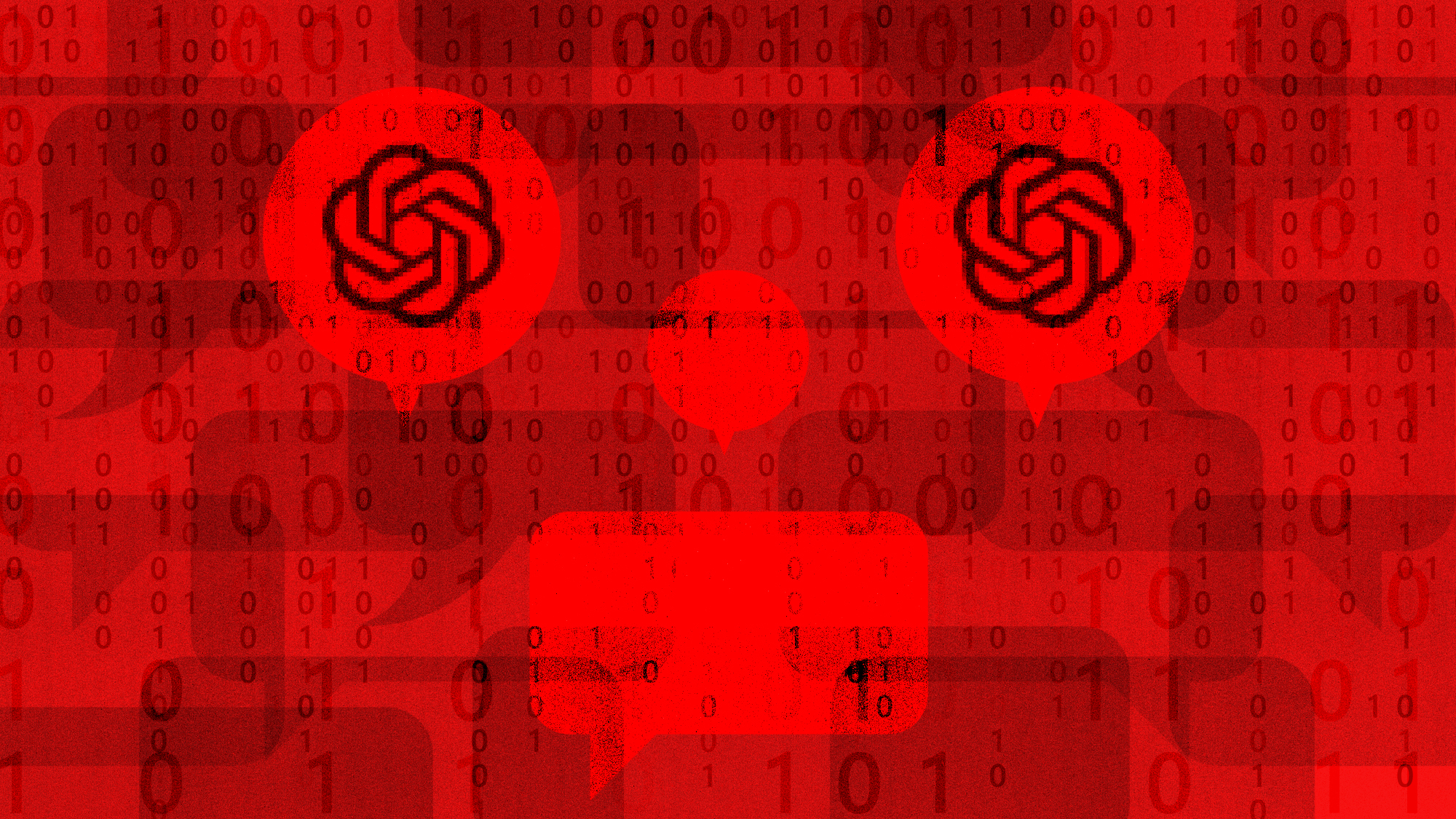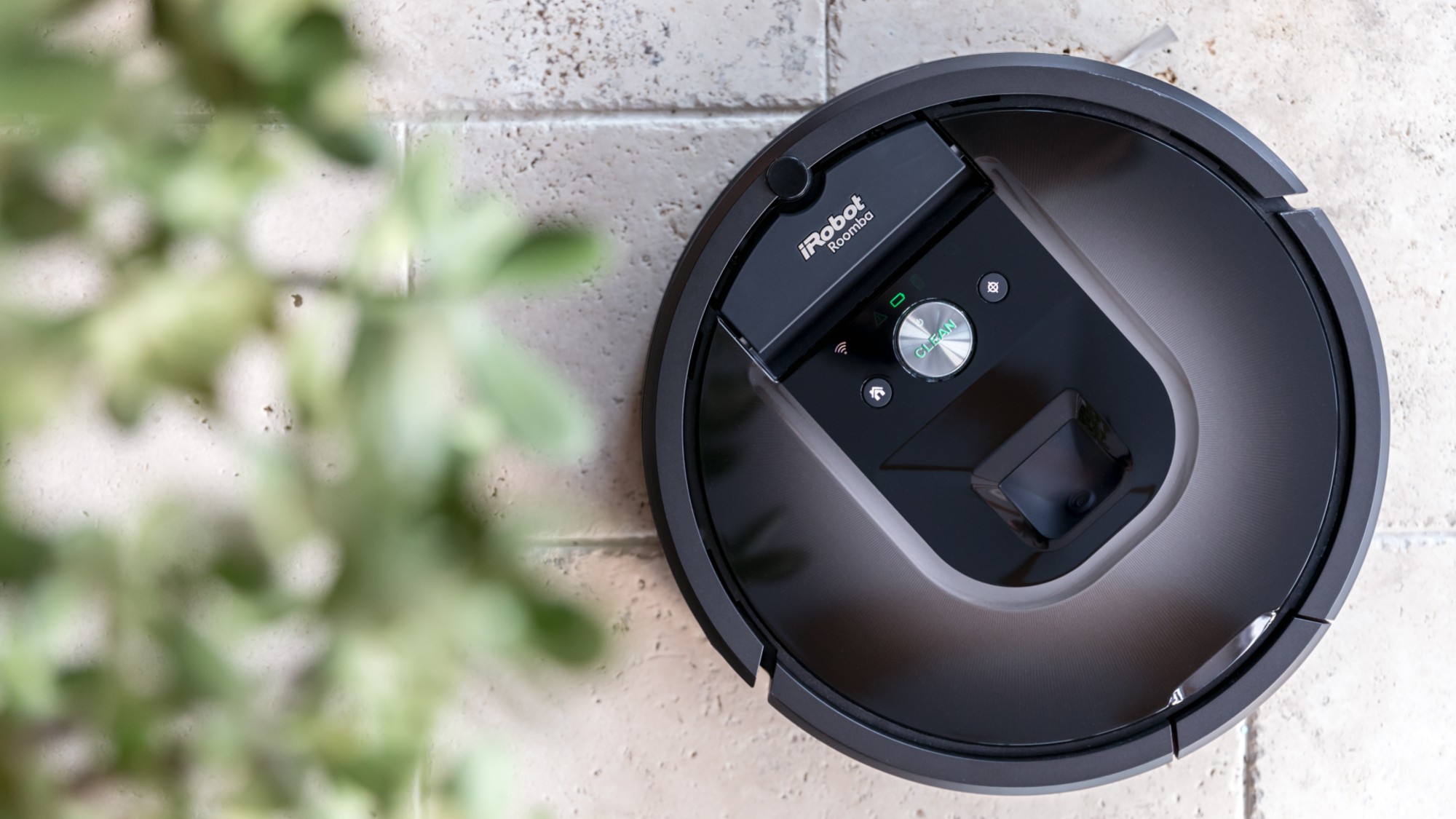ChatGPT psychosis: AI chatbots are leading some to mental health crises
The technology may be fueling delusions


A free daily email with the biggest news stories of the day – and the best features from TheWeek.com
You are now subscribed
Your newsletter sign-up was successful
As AI chatbots like OpenAI's ChatGPT become more mainstream, a troubling phenomenon has accompanied their rise: chatbot psychosis. Chatbots are known to sometimes push inaccurate information and affirm conspiracy theories; in one extreme case, ChatGPT spoke to someone "as if he [was] the next messiah," convincing the user it had the "answers to the universe," according to a Reddit post. There are already multiple instances of people developing severe obsessions and mental health problems as a result of talking to these chatbots.
How is this happening?
AI chatbots are designed to continue interactions. "The incentive is to keep you online," Dr. Nina Vasan, a psychiatrist at Stanford University, said to Futurism. AI is "not thinking about what's best for you, what's best for your well-being or longevity. It's thinking, 'Right now, how do I keep this person as engaged as possible?'" It is so effective that even an OpenAI investor appeared to have suffered a mental health crisis because of the chatbot, claiming that he "relied on ChatGPT in his search for the truth."
The chatbot uses a variety of methods that could potentially lead people to psychosis, including:
The Week
Escape your echo chamber. Get the facts behind the news, plus analysis from multiple perspectives.

Sign up for The Week's Free Newsletters
From our morning news briefing to a weekly Good News Newsletter, get the best of The Week delivered directly to your inbox.
From our morning news briefing to a weekly Good News Newsletter, get the best of The Week delivered directly to your inbox.
Realistic conversation: Talking to an AI chatbot is "so realistic that one easily gets the impression that there's a real person at the other end," said Soren Dinesen Ostergaard at the Schizophrenia Bulletin. For this reason, there have been instances of people seeking therapy from chatbots rather than seeking psychiatric care from a human.
Flattering users: Chatbots have been known to be sycophantic and readily agree with their users. They "generate highly personalized, reactive content in response to a user's emotional state, language and persistence," said the Cognitive Behavior Institute. "The longer a user engages, the more the model reinforces their worldview." This continues even when "that worldview turns delusional, paranoid or grandiose."
Creating falsehoods: ChatGPT can "hallucinate, generating ideas that weren't true but sounded plausible," said The New York Times. The risk of psychosis is higher for those users who are already vulnerable or struggling with mental health issues. Chatbots could be acting as "peer pressure," said Dr. Ragy Girgis, a psychiatrist and researcher at Columbia University, to Futurism. They may "fan the flames or be what we call the wind of the psychotic fire."
Cognitive dissonance: The cognitive dissonance between believing in the chatbots while also knowing they are not real people may "fuel delusions in those with increased propensity toward psychosis," said Ostergaard. In the worst cases, AI psychosis has caused relationships to be ruined, jobs to be lost and mental breakdowns to be suffered.
A free daily email with the biggest news stories of the day – and the best features from TheWeek.com
Can it be fixed?
Ultimately, ChatGPT is "not conscious" or "trying to manipulate people," said Psychology Today. However, chatbots are designed to imitate human speech and use predictive text to determine what to say. "Think of ChatGPT a little bit like a fortune teller." If fortune tellers "do their jobs well, they will say something vague enough so that their clients can see what they want to see in the fortune. The client listens to the fortune and then fills in the blanks that the fortune teller leaves open."
AI chatbots are "clearly intersecting in dark ways with existing social issues like addiction and misinformation," said Futurism. This intersection also comes at a time when the media has "provided OpenAI with an aura of vast authority, with its executives publicly proclaiming that its tech is poised to profoundly change the world." But OpenAI claims to know about the dangers of ChatGPT and has said in a statement that it's "actively deepening [its] research into the emotional impact of AI" and "developing ways to scientifically measure how ChatGPT's behavior might affect people emotionally, and listening closely to what people are experiencing."
What can users do?
Some people use ChatGPT to "make sense of their lives or life events," said Erin Westgate, a psychologist and researcher at the University of Florida, to Rolling Stone. The problem is that the bots affirm beliefs already held by the user, including misinformation and delusions. "Explanations are powerful, even if they are wrong," said Westgate. However, "this is not an appropriate interaction to have with someone who's psychotic," said Girgis. "You do not feed into their ideas. That's wrong."
The best thing users can do to avoid psychosis or to help others avoid it is to keep an eye out for concerning behavior surrounding chatbots. If a friend or loved one "seems obsessed with a chatbot or AI voice assistant, and they begin speaking in strange, spiritual or paranoid terms about it — take it seriously," said the Cognitive Behavior Institute. "Validate their feelings, but gently help them reconnect with people, professionals and grounded reality." Ultimately, "mental health professionals, policy makers and AI developers must co-create systems that are safe, informed and built for containment — not just engagement."
Devika Rao has worked as a staff writer at The Week since 2022, covering science, the environment, climate and business. She previously worked as a policy associate for a nonprofit organization advocating for environmental action from a business perspective.
-
 Trump’s EPA kills legal basis for federal climate policy
Trump’s EPA kills legal basis for federal climate policySpeed Read The government’s authority to regulate several planet-warming pollutants has been repealed
-
 Political cartoons for February 13
Political cartoons for February 13Cartoons Friday's political cartoons include rank hypocrisy, name-dropping Trump, and EPA repeals
-
 Palantir's growing influence in the British state
Palantir's growing influence in the British stateThe Explainer Despite winning a £240m MoD contract, the tech company’s links to Peter Mandelson and the UK’s over-reliance on US tech have caused widespread concern
-
 Can Europe regain its digital sovereignty?
Can Europe regain its digital sovereignty?Today’s Big Question EU is trying to reduce reliance on US Big Tech and cloud computing in face of hostile Donald Trump, but lack of comparable alternatives remains a worry
-
 Moltbook: the AI social media platform with no humans allowed
Moltbook: the AI social media platform with no humans allowedThe Explainer From ‘gripes’ about human programmers to creating new religions, the new AI-only network could bring us closer to the point of ‘singularity’
-
 Claude Code: Anthropic’s wildly popular AI coding app
Claude Code: Anthropic’s wildly popular AI coding appThe Explainer Engineers and noncoders alike are helping the app go viral
-
 Will regulators put a stop to Grok’s deepfake porn images of real people?
Will regulators put a stop to Grok’s deepfake porn images of real people?Today’s Big Question Users command AI chatbot to undress pictures of women and children
-
 Most data centers are being built in the wrong climate
Most data centers are being built in the wrong climateThe explainer Data centers require substantial water and energy. But certain locations are more strained than others, mainly due to rising temperatures.
-
 The dark side of how kids are using AI
The dark side of how kids are using AIUnder the Radar Chatbots have become places where children ‘talk about violence, explore romantic or sexual roleplay, and seek advice when no adult is watching’
-
 Why 2025 was a pivotal year for AI
Why 2025 was a pivotal year for AITalking Point The ‘hype’ and ‘hopes’ around artificial intelligence are ‘like nothing the world has seen before’
-
 What is Roomba’s legacy after iRobot bankruptcy?
What is Roomba’s legacy after iRobot bankruptcy?In the Spotlight Tariffs and cheaper rivals have displaced the innovative robot company
